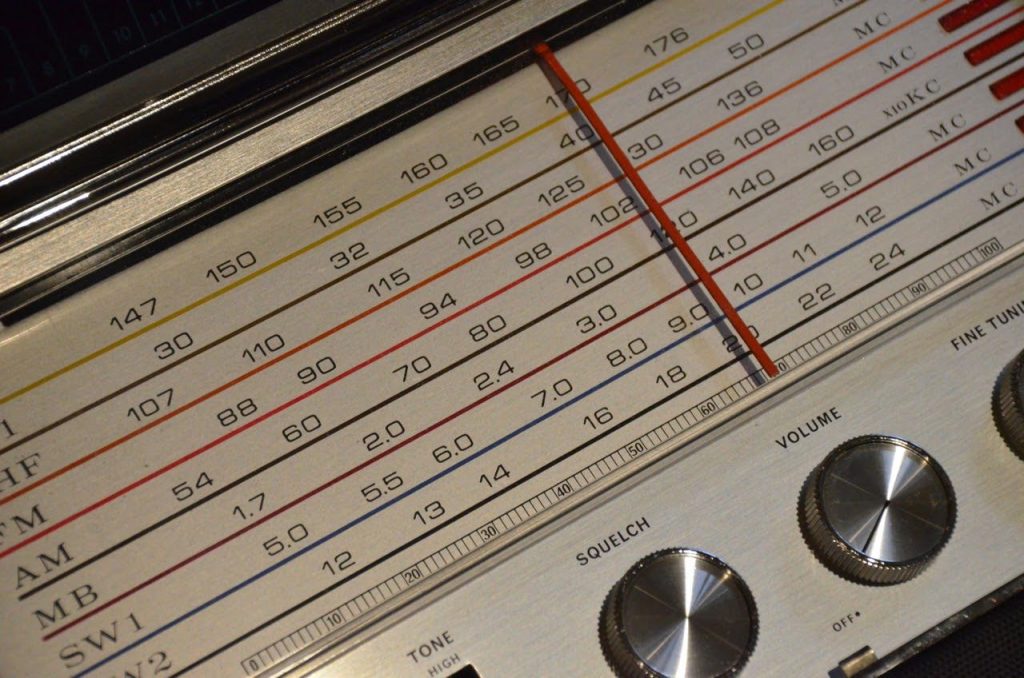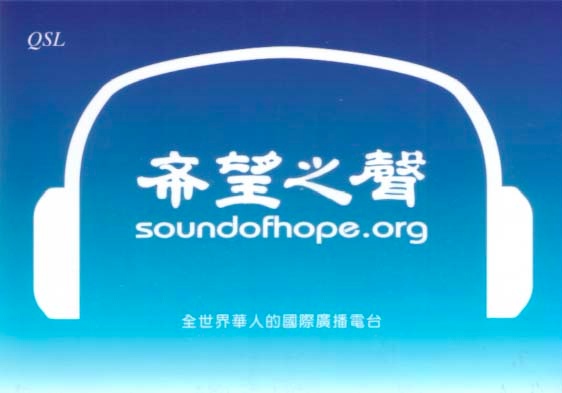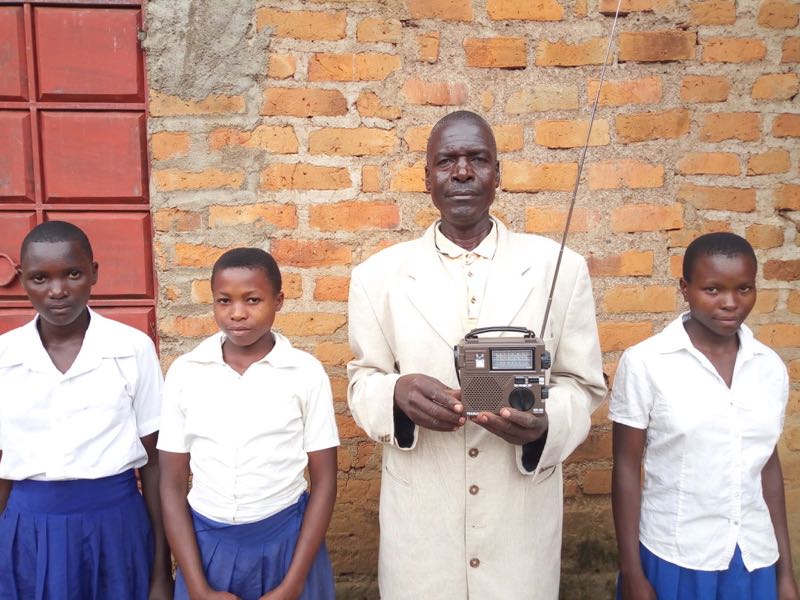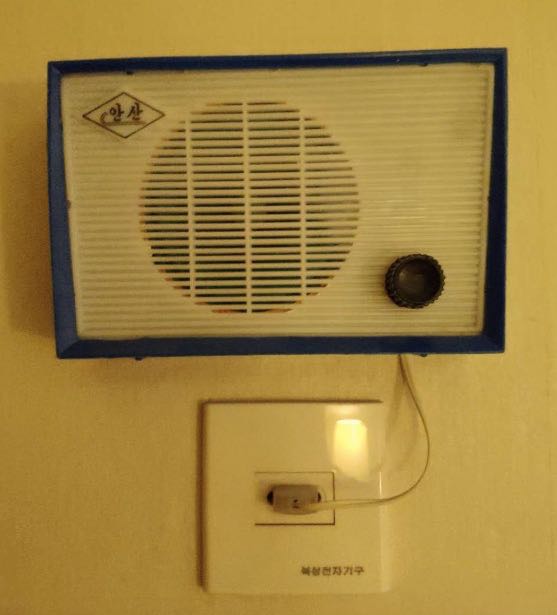A Taiwanese businessman is scheduled to face trial in Thailand’s northern Chiang Mai city next week on charges that he illegally hosted a radio station that broadcast uncensored news to listeners in China, amid claims that Beijing pressured Thai authorities to shut down the station.
The June 19-20 hearing at the Chiang Mai provincial court comes more than five months after Chiang Yung-hsin, 52, was indicted on charges of setting up the station without a permit for Sound of Hope (SOH), a San Francisco-based radio network that was founded by Falun Gong, a religious movement banned in China, according to court documents.
Chiang, who could be jailed for up to five years if convicted, denies the charges, saying the broadcasting facility was set up by his tenants.
“I did not set up any radio station, but friends used the premises I rented to set up transmitters,” Chiang told BenarNews, an RFA-affiliated online news service, in a brief interview in Bangkok through an assistant while denying the charges against him.
Chiang’s attorney was not available for comment. Prosecutors and Chiang’s defense team are scheduled to present their cases over the two-day hearing.
Sound of Hope Radio is a public network that broadcasts news to China through shortwave radio signals in nearby countries, spokesman Frank Lee said.
Lee alleged that the Thai government pressured Chiang, who was not aided by a translator, to sign documents pleading guilty at the time of his arrest. He also alleged that Thai officials were pressured by the Chinese government.
“Giving in to the pressure from Beijing to suppress free press is not good for Thailand and its people,” Lee told BenarNews.
“Mr. Chiang is a volunteer for SOH, he didn’t do this for his own gain. We urge the Thai government to free Mr. Chiang so that he can return to Taiwan to his wife and two children.”
But Thai officials flatly rejected the claims.
“Thai law enforcement arrested Chiang without any pressure from the Chinese,” a Thai security official, speaking on condition of anonymity, told BenarNews.
In August 2018, officials shut down the shortwave radio station broadcasting from property that Chiang rented in Chiang Mai, and arrested him on Nov. 22, 2018. He was released on bail three days later but ordered to remain in Thailand.
Police filed the charges against Chiang alleging that he violated the Radio Communications Act and the Broadcasting and Television Business Act, both of which carry a sentence of up to five years if convicted because he did not have the necessary permission or license to operate, according to various sources.
“The Thai justice system is handling this case,” Busadee Santipitaks, spokeswoman for the ministry of foreign affairs, told BenarNews when asked for comment.
Protests against prosecution
In January, press freedom group Reporters Without Borders (RSF) spoke out against Chiang’s arrest.
“This totally unjustified arrest deals a new blow to the freedom to inform in Thailand and penalizes Chinese listeners who count on this radio station for information that circumvents censorship,” RSF said in a news release at the time.
“We call on the Thai authorities to stop abetting Beijing’s operations against opposition media outlets and to drop charges against Chiang.”
RSF said it has learned that the Chinese government pressured the Thai authorities to shut down the radio station.
Paris-based RSF said Thai officials took the action after receiving a complaint from a “mysterious witness” who claimed to have seen a 30-meter (100-foot) antenna being erected at the site.
SOH insisted that no antenna was constructed because it is not needed for shortwave broadcasting and denied any involvement in “illegal broadcasting,” according to RSF.
U.S.-based Freedom House had also spoken out against Chiang’s arrest. It said the Thai government took advantage of his limited knowledge of the language and “deceived Chiang into what amounted to signing a confession.”
“This is not the first time Beijing has pressured Asian governments to crack down on SOH broadcasts,” Freedom House had said in a recent update of press freedom news related to China published on its website. “In 2011, two men in Vietnam were jailed for broadcasting content into China, and Indonesian authorities attempted to shut down SOH affiliate Radio Era-baru, which transmitted programming to local Chinese communities in Southeast Asia.”
Lee said the SOH broadcasts were needed.
“SOH believes shortwave broadcasting to China is very critical to the people in there to learn about truthful and accurate news in China and around the world,” Lee said. “The Chinese communist regime constantly censors news on its human rights violations, religious persecution and objective news from around the world.”
Founded in 1992 in China’s northeast, the Falun Gong spiritual movement gained increasing influence as the fastest growing religion in the PRC and overseas over the next seven years. In 1999 the Chinese government at the orders of then President Jiang Zemin began a harsh and sometimes deadly crackdown on the sect, dragging practitioners from their homes and sending them to detention centers.
Outside of China, the movement was considered harmless and continued to flourish. It is often cited as an example of religious persecution in China, with practitioners and allied religious freedom advocates holding protests in major cities to bring attention to the situation faced by Falun Gong believers in the PRC.
Click here to read the full story at RFA News.








